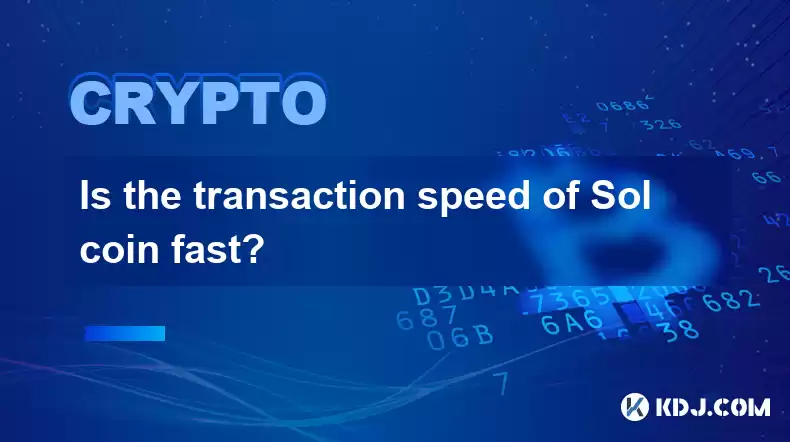-
 Bitcoin
Bitcoin $120100
1.16% -
 Ethereum
Ethereum $4329
2.25% -
 XRP
XRP $3.192
-0.22% -
 Tether USDt
Tether USDt $1.000
-0.01% -
 BNB
BNB $805.2
0.47% -
 Solana
Solana $178.7
-1.85% -
 USDC
USDC $0.9998
0.00% -
 Dogecoin
Dogecoin $0.2305
-1.62% -
 TRON
TRON $0.3445
1.17% -
 Cardano
Cardano $0.7940
-1.28% -
 Hyperliquid
Hyperliquid $44.44
-1.20% -
 Chainlink
Chainlink $21.86
-2.42% -
 Stellar
Stellar $0.4423
-0.15% -
 Sui
Sui $3.728
-3.84% -
 Bitcoin Cash
Bitcoin Cash $584.8
2.19% -
 Hedera
Hedera $0.2524
-2.87% -
 Ethena USDe
Ethena USDe $1.001
-0.02% -
 Avalanche
Avalanche $23.66
-0.78% -
 Litecoin
Litecoin $124.5
0.39% -
 Toncoin
Toncoin $3.399
1.77% -
 UNUS SED LEO
UNUS SED LEO $9.002
-0.44% -
 Shiba Inu
Shiba Inu $0.00001327
-2.10% -
 Uniswap
Uniswap $11.42
2.58% -
 Polkadot
Polkadot $3.957
-2.50% -
 Cronos
Cronos $0.1696
4.50% -
 Dai
Dai $1.000
0.00% -
 Ethena
Ethena $0.8139
3.04% -
 Bitget Token
Bitget Token $4.442
-0.38% -
 Monero
Monero $271.2
2.93% -
 Pepe
Pepe $0.00001168
-2.91%
Is the transaction speed of Sol coin fast?
Solana boasts incredibly fast theoretical transaction speeds, exceeding many rivals. However, actual speeds vary significantly due to network congestion and transaction size, making consistent high speed a challenge.
Mar 12, 2025 at 08:05 am

Key Points:
- Solana's transaction speed is significantly faster than many other major cryptocurrencies, boasting theoretical speeds far exceeding those achieved in practice.
- Network congestion, due to high usage or network upgrades, can significantly impact Solana's transaction speed.
- Transaction speed is influenced by factors like block time, transaction size, and network congestion.
- Several factors contribute to Solana's speed, including its unique consensus mechanism and efficient architecture.
- While Solana aims for high throughput, achieving consistently fast transaction speeds depends on various dynamic conditions.
Is the transaction speed of Sol coin fast?
Solana (SOL) is frequently lauded for its exceptionally high transaction speed, a key selling point differentiating it from other cryptocurrencies like Bitcoin or Ethereum. Theoretically, Solana's network can process thousands of transactions per second (TPS), far outpacing many competitors. However, the actual experienced speed varies considerably.
The theoretical speed of Solana's network is largely due to its innovative Proof-of-History (PoH) consensus mechanism. PoH timestamps transactions before they're added to the blockchain, significantly improving efficiency compared to traditional Proof-of-Work or Proof-of-Stake systems. This, coupled with its optimized architecture, contributes to its potential for rapid transaction processing.
However, achieving these theoretical speeds consistently is a challenge. Network congestion, a common issue in many blockchain networks, can significantly slow down Solana's transaction processing. During periods of high usage or network upgrades, users may experience noticeably slower transaction times. This means the advertised speed isn't always a reliable indicator of real-world performance.
The size of individual transactions also plays a role. Larger transactions, requiring more computational power to process, naturally take longer than smaller ones. The complexity of the transaction, such as the number of accounts involved, also impacts processing time.
Factors like the network's current load and the number of active validators also influence transaction speeds. When the network is under heavy load, the time it takes for a transaction to be confirmed increases. This is a characteristic shared by many blockchain networks, highlighting the inherent trade-off between scalability and decentralization.
Solana's block time, the time it takes to add a new block to the blockchain, is another critical factor determining transaction speed. Shorter block times generally translate to faster transaction confirmation, contributing to Solana's overall speed advantage. However, this is also subject to network conditions.
Compared to other popular cryptocurrencies, Solana often boasts a significant speed advantage. Bitcoin, for example, processes only a few transactions per second, while Ethereum's transaction speed, while improving with upgrades like Ethereum 2.0, still lags behind Solana's potential. This speed difference is a major factor attracting developers and users to the Solana ecosystem.
Maintaining consistent high-speed transactions remains a challenge for Solana. While its underlying technology aims for exceptional speed, the reality is often influenced by fluctuating network conditions. Developers are constantly working on improving scalability and addressing network congestion issues to ensure a more reliable and consistently fast experience for users.
The actual speed experienced by users can vary widely. While some may experience near-instantaneous transaction confirmations, others may encounter delays during peak network activity. This unpredictability underscores the importance of understanding the factors that influence Solana's transaction speed.
Understanding the nuances of Solana's transaction speed requires acknowledging the interplay between its innovative technology and the practical limitations of a decentralized network. While the potential for rapid transaction processing is a key strength, real-world performance can be impacted by factors outside of Solana's direct control.
Frequently Asked Questions:
Q: What is the average transaction speed of Solana?
A: There's no single "average" transaction speed for Solana. It varies greatly depending on network congestion, transaction size, and other factors. While the network boasts the potential for thousands of TPS, the actual speed experienced by users fluctuates significantly.
Q: How does Solana's transaction speed compare to other cryptocurrencies?
A: Solana's theoretical transaction speed is considerably higher than Bitcoin or Ethereum. However, actual performance varies. During periods of low congestion, it can be significantly faster, but high usage can lead to slower speeds than some other blockchains with lower peak throughput.
Q: What causes slow transaction speeds on Solana?
A: Network congestion is a primary cause. High transaction volume, network upgrades, and large transaction sizes can all contribute to slower processing times.
Q: Is Solana's speed consistently fast?
A: No, Solana's speed is not consistently fast. While the technology aims for high throughput, real-world performance is affected by various dynamic network conditions. Speed varies greatly depending on network load.
Q: How can I improve my transaction speed on Solana?
A: You can't directly control Solana's network speed. However, you can try to transact during periods of lower network activity, and use smaller transaction sizes to reduce processing time.
Q: What is Proof-of-History (PoH) and how does it affect transaction speed?
A: PoH is Solana's unique consensus mechanism. It timestamps transactions before they are added to the blockchain, allowing for faster processing compared to traditional methods like Proof-of-Work or Proof-of-Stake. This is a key contributor to Solana's potential high throughput.
Disclaimer:info@kdj.com
The information provided is not trading advice. kdj.com does not assume any responsibility for any investments made based on the information provided in this article. Cryptocurrencies are highly volatile and it is highly recommended that you invest with caution after thorough research!
If you believe that the content used on this website infringes your copyright, please contact us immediately (info@kdj.com) and we will delete it promptly.
- Bitcoin, Solana, MAGACOIN FINANCE: Navigating the 2025 Crypto Landscape
- 2025-08-12 00:30:13
- Cardano, ADA Holders, and Layer Brett: A Meme Coin with Real Utility?
- 2025-08-12 00:50:12
- Bitcoin, Michael Saylor, and Savvy Investors: A New Era of Digital Assets
- 2025-08-12 00:30:13
- Crypto Presales in 2025: Spotting the Next Big Thing with Analyst Insights
- 2025-08-12 00:50:12
- Cloud Mining in 2025: Bitcoin, Litecoin, and the Quest for Passive Income
- 2025-08-12 00:55:32
- Token Security, Agentic AI, Cybersecurity Guide: Navigating the New Frontier
- 2025-08-11 23:00:12
Related knowledge

How to purchase Aragon (ANT)?
Aug 09,2025 at 11:56pm
Understanding Aragon (ANT) and Its PurposeAragon (ANT) is a decentralized governance token that powers the Aragon Network, a platform built on the Eth...

Where to trade Band Protocol (BAND)?
Aug 10,2025 at 11:36pm
Understanding the Role of Private Keys in Cryptocurrency WalletsIn the world of cryptocurrency, a private key is one of the most critical components o...

What is the most secure way to buy Ocean Protocol (OCEAN)?
Aug 10,2025 at 01:01pm
Understanding Ocean Protocol (OCEAN) and Its EcosystemOcean Protocol (OCEAN) is a decentralized data exchange platform built on blockchain technology,...

Where can I buy UMA (UMA)?
Aug 07,2025 at 06:42pm
Understanding UMA and Its Role in Decentralized FinanceUMA (Universal Market Access) is an Ethereum-based decentralized finance (DeFi) protocol design...

How to buy Storj (STORJ) tokens?
Aug 09,2025 at 07:28am
Understanding Storj (STORJ) and Its Role in Decentralized StorageStorj is a decentralized cloud storage platform that leverages blockchain technology ...

Where to find the best price for Audius (AUDIO)?
Aug 11,2025 at 04:01pm
Understanding the Basics of Ethereum StakingEthereum staking refers to the process of locking up ETH tokens to support the security and operations of ...

How to purchase Aragon (ANT)?
Aug 09,2025 at 11:56pm
Understanding Aragon (ANT) and Its PurposeAragon (ANT) is a decentralized governance token that powers the Aragon Network, a platform built on the Eth...

Where to trade Band Protocol (BAND)?
Aug 10,2025 at 11:36pm
Understanding the Role of Private Keys in Cryptocurrency WalletsIn the world of cryptocurrency, a private key is one of the most critical components o...

What is the most secure way to buy Ocean Protocol (OCEAN)?
Aug 10,2025 at 01:01pm
Understanding Ocean Protocol (OCEAN) and Its EcosystemOcean Protocol (OCEAN) is a decentralized data exchange platform built on blockchain technology,...

Where can I buy UMA (UMA)?
Aug 07,2025 at 06:42pm
Understanding UMA and Its Role in Decentralized FinanceUMA (Universal Market Access) is an Ethereum-based decentralized finance (DeFi) protocol design...

How to buy Storj (STORJ) tokens?
Aug 09,2025 at 07:28am
Understanding Storj (STORJ) and Its Role in Decentralized StorageStorj is a decentralized cloud storage platform that leverages blockchain technology ...

Where to find the best price for Audius (AUDIO)?
Aug 11,2025 at 04:01pm
Understanding the Basics of Ethereum StakingEthereum staking refers to the process of locking up ETH tokens to support the security and operations of ...
See all articles

























































































